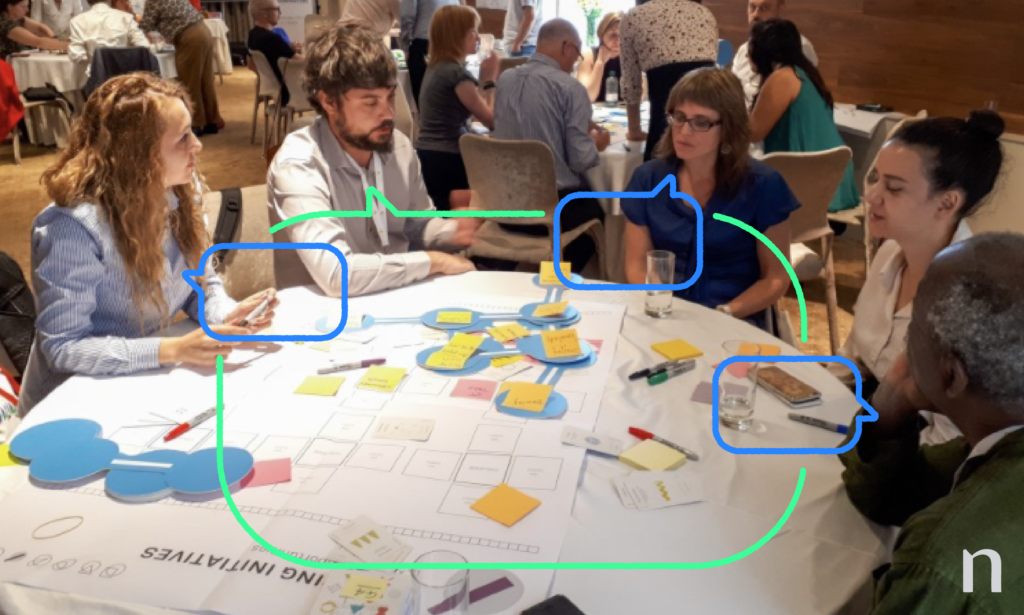ICC Programme
Rethinking the way that the Intercultural Cities network and program functions, for greater efficiency and collaboration

In September 2019, the Council of Europe asked Namahn to facilitate a two-day workshop during the yearly meeting of the Intercultural cities programme (ICC) in Odessa, Ukraine. The ICC supports cities in the implementation of intercultural policies by working with staff in governmental and non-governmental organisations. Through systemic design, we helped them develop a strategy to bring the desired synergy amongst the partners in the ICC network.
| Client | Sector | LAnguage | Team |
|---|---|---|---|
| Intercultural Cities programme – Council of Europe | Government | English | 2 designers |
Design challenge
The ICC programme supports a multi-layer network of coordinators who operate at either a national or international level. These coordinators represent 135 cities around the world with remarkable social, political and geographic diversity. One of the main challenges facing the programme was communication among the participating cities. We organized and facilitated a workshop for the members setting out clear goals: exploring new modes of communication and knowledge exchange amongst the network members, stronger policy advocacy and adequate reporting to the Council of Europe.
Approach
To prepare for the workshop, our two lead designers conducted online interviews with about ten different coordinators. We gathered insight on the network structure, the availability of resources, the collaboration between coordinators and issues related to the local skill sets. We summarised the insight using factors and themes maps and causal loop diagrams. This insight then served as input material for the workshop activities in Odessa.

During the workshop itself, we enabled the participants to envision the ideal network by sketching the relationships between the actors within and outside the network. The result of this exercise indicated a future direction for the network structure, showing that cities should work in thematic/geographical clusters and could benefit from local networks of stakeholders. This conclusion led to the formation of new roles, and most importantly, opened a dialogue among all the players.
We then introduced ideation. Participants looked at the best practices in and outside the ICC to generate ideas and define a strategy. The strategy was a set of crucial interventions devised to oil the network’s gears.
Result
Based on the outcome of the session, the Council of Europe established a clear agenda of action points, managed by the network actors within a specific timeframe. View the ICC’s report. Following this project, we continued working with the Council of Europe on a thematic cluster addressed by the ICC.